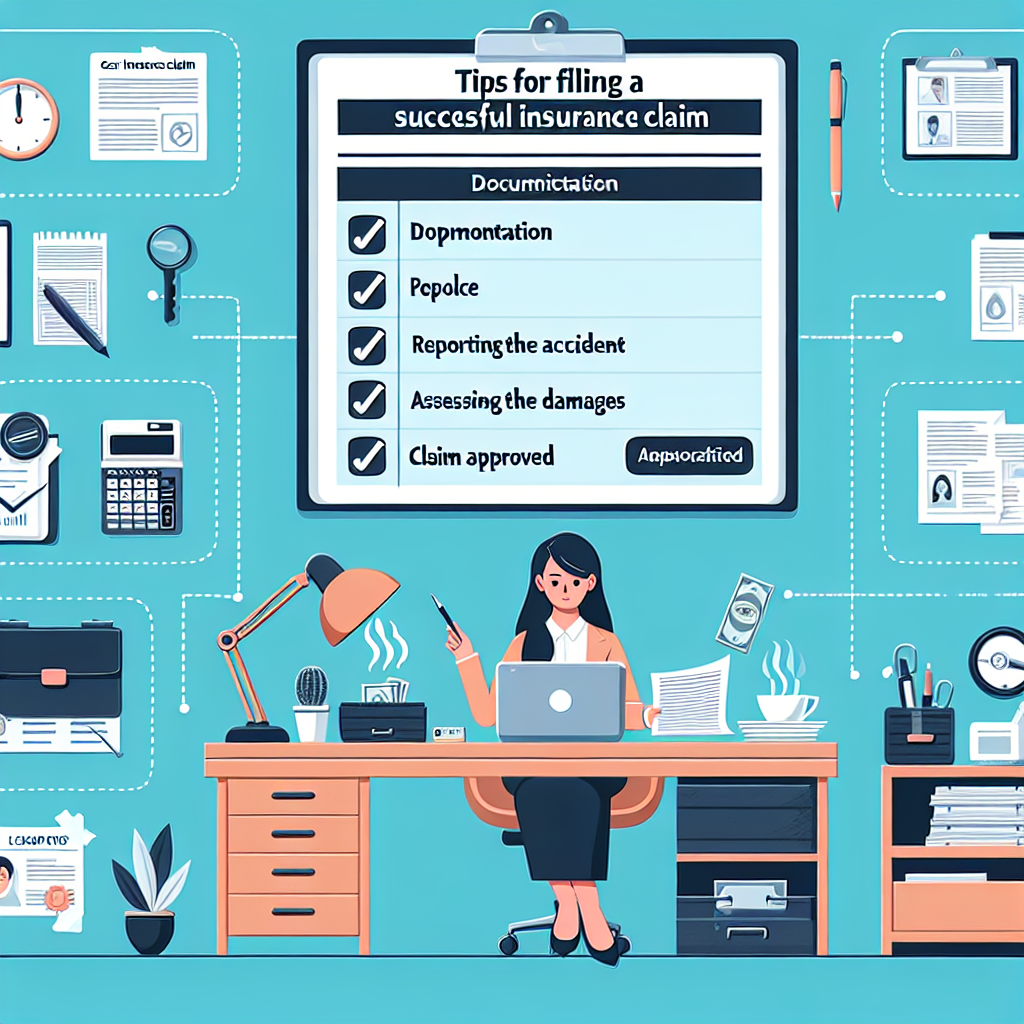Filing a car insurance claim can feel overwhelming, especially after the stress of an accident or damage to your vehicle. However, knowing how to navigate the process effectively can make a significant difference in your experience and the outcome. Here are some expert tips to help you file a successful car insurance claim without the added stress.
1. Stay Calm and Assess the Situation
Accidents can be chaotic, but staying calm is crucial. Assess the situation—check for injuries and ensure that you and others are safe. If it’s safe to do so, move your vehicle to a safe location to prevent further accidents. This initial step can set a positive tone for the claims process.
2. Document Everything
Documentation is your best friend when filing a claim. Take comprehensive notes and gather as much information as possible. This includes:
- Photos of the Scene: Capture images of the vehicles involved, any visible damages, road conditions, traffic signals, and any surrounding factors.
- Witness Statements: If there are witnesses, obtain their contact information and, if possible, ask for their accounts of the incident.
- Police Report: If law enforcement is involved, ensure you get a copy of the police report as it provides an official record of the incident.
3. Notify Your Insurance Company Promptly
Prompt communication with your insurance company is vital. Most policies require you to file a claim within a specific timeframe—often 30 days after the incident. Be prepared to provide them with the documentation you’ve gathered.
Essential Information to Provide
When you contact your insurer, be ready to supply:
- Your policy number
- Details of the accident (date, time, and location)
- A description of the vehicles and damages
- The police report number, if applicable
4. Understand Your Coverage
Knowing what your insurance policy covers can significantly impact how you file your claim. Familiarize yourself with the details of your coverage, including:
- Collision coverage
- Liability coverage
- Comprehensive coverage
This understanding will help you know what expenses to expect and how much you may be able to claim.
5. Keep Communication Open
After filing your claim, maintain open communication with your insurance adjuster. If you have to provide additional information, be proactive in doing so. Keeping in touch can help accelerate the claims process and show your commitment to a fair resolution.
Be Patient but Persistent
While waiting for a response, it’s important to be patient. Insurance claims can take time. However, if you feel that your claim is being delayed without reason, don’t hesitate to follow up. A polite nudge can keep your claim moving.
6. Be Honest and Accurate
Honesty is essential when filing your claim. Provide truthful information and avoid exaggerating damages or injuries. Misrepresenting facts can lead to denied claims or increased premiums in the future. Remember, your integrity is as important as the payout.
7. Get Repair Estimates
Once your claim is acknowledged, you’ll likely need to get repair estimates. Collect multiple quotes from reputable auto repair shops. This not only gives you options but also ensures you are aware of the true repair costs.
Choose a Trusted Repair Shop
If your insurance company has preferred repair shops, consider using them. These shops often work closely with the insurance companies, which can streamline the claims process.
8. Stay Organized
Keep everything related to your claim organized. This includes:
- Claim documents
- Emails and correspondence with your insurer
- Estimates and invoices from repair shops
Having this information in one place will make it easier to reference when needed, helping you stay organized throughout the process.
9. Know When to Appeal
If your claim is denied or the payout doesn’t meet your expectations, you have the right to appeal the decision. In this case, review your policy, understand the reason for the denial, and present any additional evidence that supports your claim.
Seek Legal Advice
If you encounter difficulties with your claim, seeking advice from a professional or an attorney who specializes in insurance claims may be beneficial. They can provide guidance tailored to your specific situation.
Conclusion
Filing a car insurance claim doesn’t have to be a stressful experience. By following these tips, you can increase your chances of a successful claim and return to normalcy faster. Remember, understanding your coverage, documenting everything, and keeping the lines of communication open with your insurer are key steps toward a smooth recovery. Drive safely and stay prepared!


